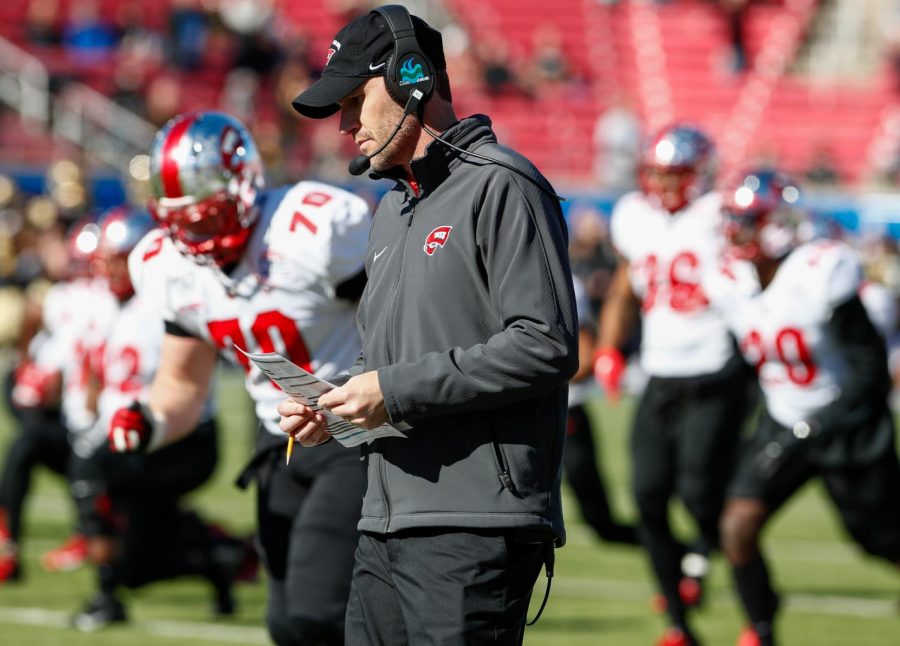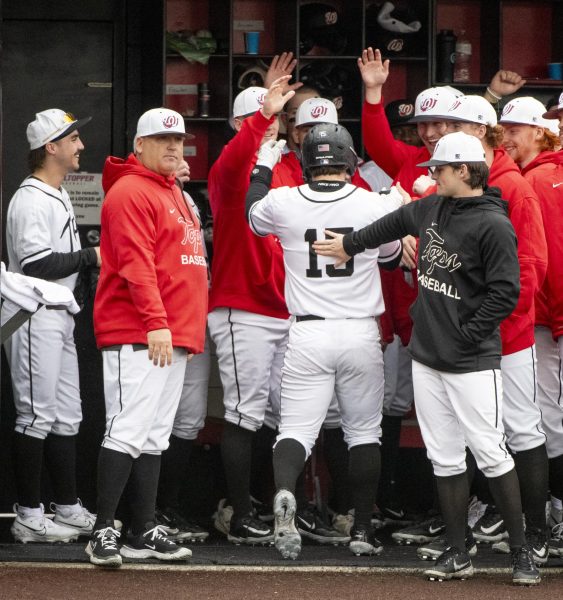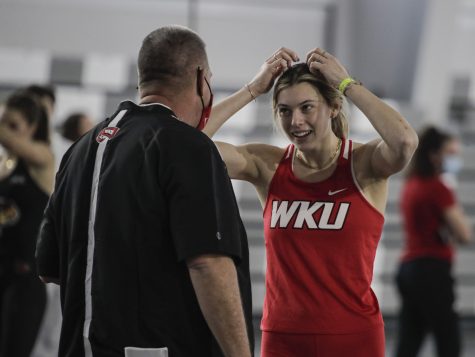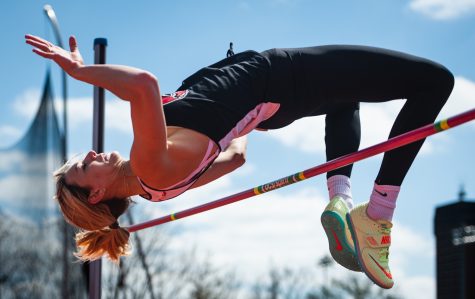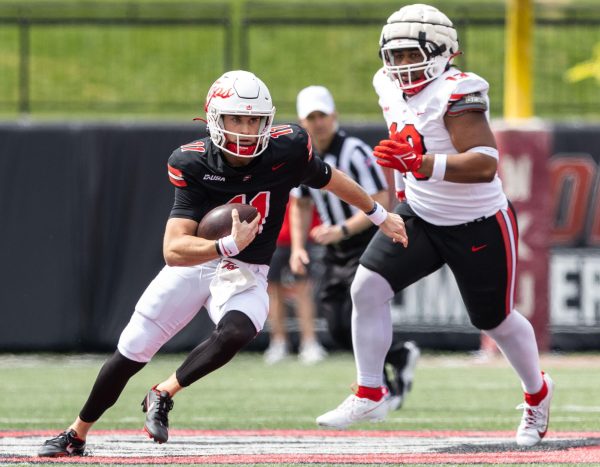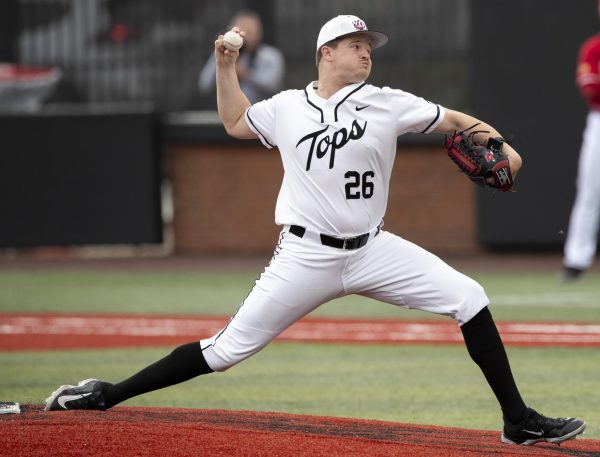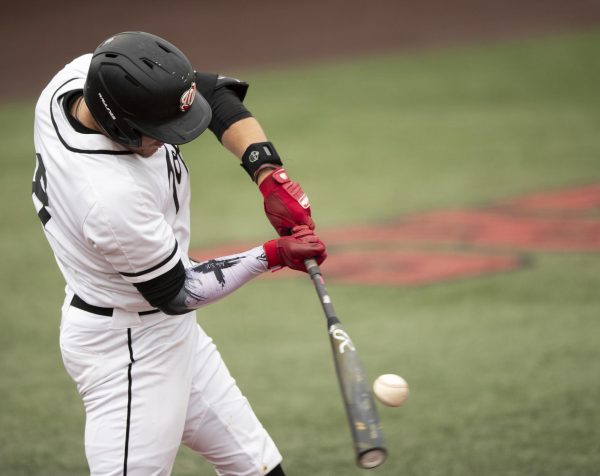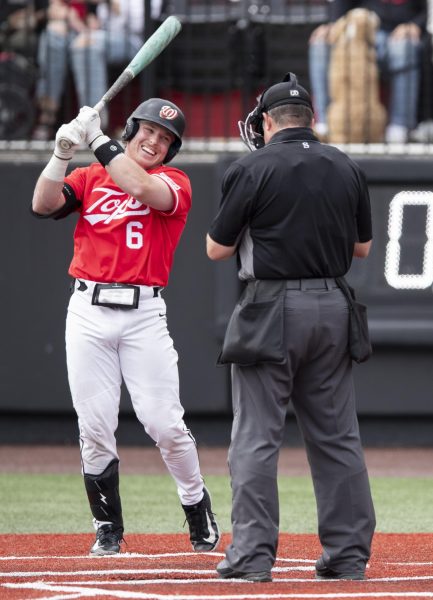Here’s some of what WKU, Western Michigan had to gain in First Responder Bowl
December 31, 2019
Bowl games rule the college football landscape, and there’s a reason why the 130 Football Bowl Subdivision programs across the country spent the regular season vying for a spot in the 40 FBS bowl games — win or lose, teams have a lot to gain from playing in a bowl game.
From bonuses for coaches, gifts for players, extra practice time, unique experiences in a new city, payouts and national exposure, bowl games come with plenty of built-in benefits.
WKU’s winning streak to end the regular season put the Hilltoppers on a collision course with Western Michigan, and although the First Responder Bowl ended up being an instant classic that ended with a walk-off field goal, the Dallas-based bowl game provided the Hilltoppers and Broncos with more than just a chance to pick up a victory for their respective programs.
Performance-based compensation
The head coaches on each side of the First Responder Bowl had a financial stake in the game’s outcome, as both WKU head coach Tyson Helton and WMU head coach Tim Lester were in line to receive bonus money for producing a bowl win.
Lester would’ve received $25,000 for defeating the Hilltoppers, according to a USA Today article published on Friday.
The Herald obtained a copy of Helton’s contract after it was approved by the university’s board of regents on March 1, 2019, and the document included several potential bonuses.
A 23-20 bowl victory tacked on $50,000 to Helton’s $800,000 base pay for the 2019 season, a figure that had already increased by at least $75,000 after Helton earned $25,000 for his C-USA Coach of the Year honor and $50,000 for posting a winning percentage greater than .500.
Gifts from bowl committees
WKU and WMU players — like every other college football player whose team gets selected to play in a bowl game — were given gifts from their bowl, in this case the First Responder Bowl.
Both teams received a Parkland duffle bag, a football, Nine Line Apparel patriotic athletic wear and access to a gift suite, according to a list of college football bowl committee gifts published Dec. 9 by Sports Business Journal.
Each participant in FBS bowl games is allowed to receive gifts from the numerous bowl committees, but the combined maximum value of their benefits is capped at $550.
Cash gifts aren’t allowed, and players also aren’t permitted to sell any of the items they receive, which has stirred controversy over the NCAA’s dated bowl gift policies.
Additional practices
During the weeks leading up to the First Responder Bowl, WKU and WMU were allowed to practice and get a head start on preparations for the 2020 campaign in ways the programs would’ve never been allowed to do if they’d missed out on going bowling.
The NCAA allows teams that make the postseason to practice and/or hold athletic activities for up to four hours per day or 20 hours per week between the final regular season game and the bowl game, according to a USA Today article published on Dec. 21, 2016.
For comparison, non-bowl teams get a maximum of eight hours per week for mandatory weight training, conditioning and reviewing game film — including no more than two hours per week of watching said film — between the end of the regular season and Jan. 1 each year.
Like other head coaches around the country, Helton raved about his team’s extraordinary opportunity to hold extra practices and essentially gain an extra spring practice period.
“I feel like we’ll be farther along once we get back in January for training and all those kind of things,” Helton said on Dec. 21.
Days out in Dallas
The First Responder Bowl was a home game of sorts for Helton, who played quarterback at Houston in the late 1990s during his father’s tenure as the Cougars’ head coach.
But for many members of the WKU and WMU football teams, the First Responder Bowl was also a first-time opportunity to explore and explore the Lone Star State.
Among many other specialized experiences in Dallas, both the Broncos and Hilltoppers got to enjoy a demonstration from members of the Dallas Police Department Canine Squad at one of their practice sessions, a special team dinner at Eddie Deen’s Ranch, video games at the Mavs Gaming Hub and a shared afternoon of team fun at TopGolf Dallas.
Bowl payout
Bowl games pay out millions of dollars to participating teams each postseason, and the First Responder Bowl is no different. The 2018-19 total payout for the First Responder Bowl was $824,545, according to a list of payouts published by CollegeFootballPoll.com.
As members of the Group of 5 conferences (American Athletic, C-USA, Mid-American, Mountain West and Sun Belt), both WKU and WMU will receive money from a $90 million collective pool, according to a report published Saturday by Kristi Dosh.
Exactly how much each school eventually receives is something of a mystery because the agreement and formula for how the Group of 5 divides its collective pool has never officially been disclosed, but the majority of all bowl revenue is believed to be split equally.
While bowl games have the possibility to be lucrative for some institutions even after expenses, most non-Power 5 schools spend more money than they bring in from bowl games because of increased travel, lodging and meal costs for their teams, band and cheer squads.
“Unless you’re going to one of the major bowls — basically a New Year’s Six bowl — most of the rest are not that financially lucrative,” Bill Sparks, Wyoming’s senior associate athletic director for business operations, told the Casper Star-Tribune on Saturday.
“In fact, most of the time, you lose money on them. You just do.”
ESPN broadcast
Shortly after officially accepting the program’s bowl bid on Dec. 8, WKU athletic director Todd Stewart said the Hilltoppers would have “a lot of eyeballs” directed at them during the First Responder Bowl because the game was set to be broadcast nationally on ESPN.
WKU actually ended up with even more of the spotlight on its football team, as the only game in the 11:30 a.m. time slot on Dec. 30 was WKU vs. WMU in the First Responder Bowl.
The Hilltoppers seized their opportunity for national exposure, as freshman kicker Cory Munson’s 52-yarder to win the game went viral thanks to an energetic call by play-by-play announcer Dave Neal in addition to the odd circumstances surrounding the young kicker’s try.
“The 2018 First Responder Bowl never happened. The 2019 First Responder Bowl will never be forgotten,” Zach Barnett wrote in an NBC Sports article published Monday.
Sports Editor Drake Kizer can be reached at [email protected]. Follow Drake on Twitter at @drakekizer_.

